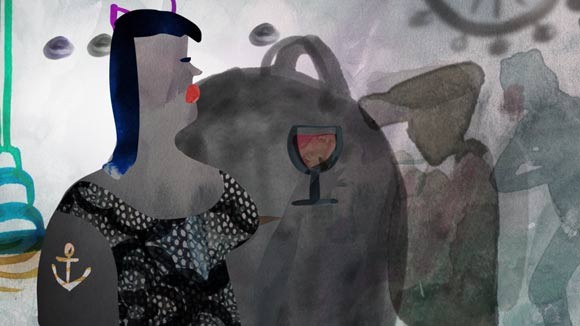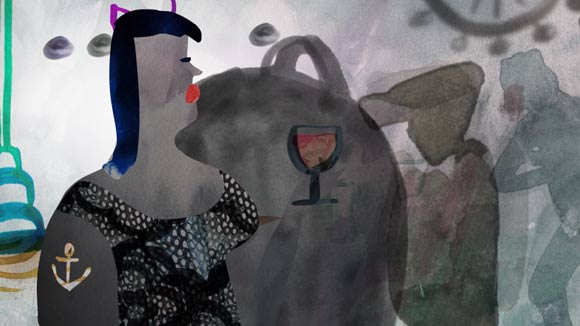

British Animation Landscape is Robust but Underfunded, New Report Reveals

Animate Projects, the non-profit organization that supports experimental animation in Britain, has always been keen to adapt. Officially formed in 2007, its roots go back further: it grew up around the Animate scheme, a collaboration between Channel 4 and the Arts Council that was initiated in 1990.
The Animate scheme closed down in 2011 after the Arts Council ceased funding the project as part of Britain’s austerity budget. Animate Projects remained, however, and continued to find new ways to back inventive animation. The organization is now aiming to set up a new initiative entitled Accelerate Animation, due to begin its activities in spring 2014.
Earlier this month Animate Projects released a comprehensive report that will inform the creation of the scheme. Looking into the animation community of Britain, this document paints a picture of a skilled workforce that is lacking in post-graduation guidance, with local but not national frameworks in place.
The report is based on contributions from animators across the UK, with information gathered through surveys, interviews, and a roundtable discussion about the needs and future of British animation. It emphasizes the range of animation being produced in the country—from art installations and independent films to music videos and computer games—and celebrates this diversity, while stressing the need for more animation that exists outside of children’s entertainment.

The document hails independent animation as the true soul of British animation. A selection of quotations from various animation artists back up this belief, such as this comment from Paul Bush:
People starting out should stick with working on what is true to them, and not bend overly to fashion, market forces or what others say. Fashions change, and there is enough commonality of human experience for all work to connect with an audience.
It is enlightening to see the statistics that have been gathered by the survey, which give an idea of how the British animation industry is currently structured. When the contributors were asked what kind of projects they work on, the biggest proportion—76%—named independent films for festivals and cinemas. The next largest categories were online projects (45%) and advertising (41%). Television and music videos each scored 37%, while feature films earned a relatively low 18%. It would be interesting to compare these statistics with the US industry, which would doubtless show a rather larger proportion of feature animators.
Another factor that is emphasized is a general lack of money. Only 36 of the survey respondents received funding; 86% instead self-funded their animation.
The conclusion reached by the report is that Accelerate Animation should prioritize three areas: helping networks between members of the British animation community; developing skills and talent amongst animators, with Accelerate assembling a faculty of as-yet-unnamed leading figures to provide guidance; and providing advocacy for animation, with the scheme seeking to improve public understanding of the medium and to lobby organizations such as the BFI and Arts Council England for additional funding.

British cinema has a history of obtaining funds from public money. From 1957 to 1985 a tax on box office receipts, dubbed the Eady Levy, boosted the national industry; at around the same time the government-funded National Film Finance Corporation helped such films as The Third Man and Saturday Night and Sunday Morning to get off the ground. More recently the UK Film Council, which existed from 2000 to 2010, used National Lottery funds to back films such as Millions, This is England and The King’s Speech—along with a critically panned comedy entitled The Sex Lives of the Potato Men, which resulted in controversy over how such public grants should be spent.
With its continued ties to the Arts Council, and the emphasis of its report on the lack of funding currently faced by British animators, the new scheme looks set to fit within this tradition. We wish it well.
For more information, including profiles of many animators who contributed to the report, see the Accelerate Animation website.
Images in this post from top to bottom:
The Royal Oak by Sandra Salter
Still from Wonky Films
Chipotle sponsored short directed by Johnny Kelly (Nexus)
